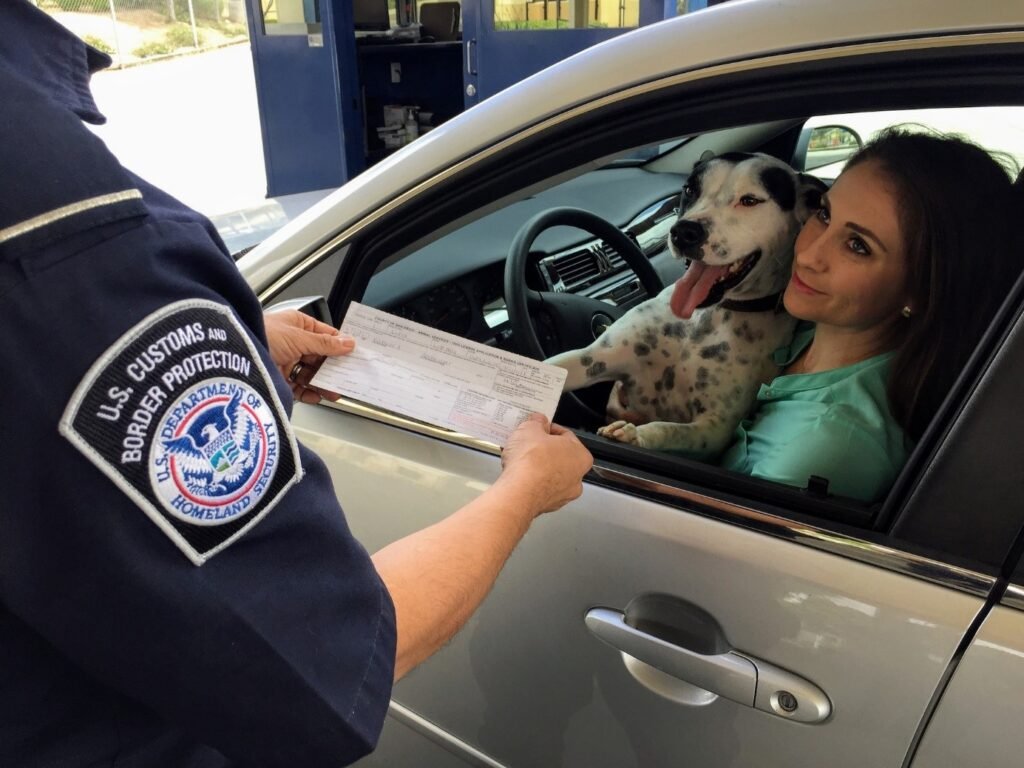Traveling with your pet can be a rewarding experience, but it requires good preparation. Whether you plan to travel to the United States, Europe, Australia, Japan or Guyana, it is crucial to understand the applicable regulations.
- Can pet ‘s accompany us everywhere?
It’s natural to want to take your four-legged friend along on your travels. But is it really possible? The answer is not that simple. Indeed, each country has its own regulations regarding the importation of tem. It is therefore crucial to inquire before any trip.
- Traveling with your pet to the United States
In the United States, pet regulations are relatively straightforward. Dogs, for example, must be vaccinated against rabies at least 30 days before entering the country. No quarantine is required, unless the animal comes from a country where rabies is endemic.
It is also recommended to have a certificate of good health issued by a veterinarian. It is not mandatory, but it can facilitate the entry of your pet into the United States.
Europe and its specific regulations for your pet
If you plan to travel to Europe with your pet, you will need to comply with European Union regulations. This requires that the animals be identified by an electronic chip and be up to date with their vaccinations, particularly against rabies.
In addition, they must be accompanied by a pet passport, issued by a veterinarian. This document certifies that the animal is in good health and has received all the necessary vaccinations. But, you wonder, is this the same process for all EU countries? Indeed, although some countries have additional requirements, the majority follow this standard protocol.
The case of Japan: strict regulations for your pet
Japan is known for its strict regulations when it comes to importing pets. If you are planning to take your company there, be prepared for quite a lengthy process.
Your animal must be identified by an electronic chip, be vaccinated against rabies and undergo a blood test to prove that it is well protected against this disease. This test must be carried out in a laboratory approved by the Japanese government and the procedure can take several months.
Also, depending on the country you are from, your pet may need to be quarantined upon arrival in Japan. It is therefore essential to inquire well in advance and to allow sufficient time to meet all requirements.

Australia: an island-continent with strict rules (pet)
Australia has unique and diverse wildlife, and to protect its ecosystems, it imposes strict regulations for incoming puppy. Before travelling, animals must receive a series of vaccinations and treatments, especially against rabies.
The quarantine period can last up to 180 days (depending on the species), of which at least 10 days will be spent in an Australian quarantine facility. In addition, there is a specific list of countries from which animals can be imported.
The United Kingdom: a passport for your pet
The United Kingdom has implemented a “animal Passport” system allowing animals to travel more easily between the United Kingdom and other countries in the European Union. However, since Brexit, some rules have changed.
Your animal must always be identified by a microchip, be vaccinated against rabies and sometimes, for certain breeds of dogs, have a certificate of treatment against echinococcosis (a type of tapeworm). Additionally, you will also need to obtain an animal health certificate for your animal.
Saudi Arabia: specific cultural rules
If you are planning to travel to Saudi Arabia with your pet, it is important to note that local culture and religion may affect the perception and treatment .
In this country, it must be vaccinated against rabies and have a health certificate, which must be notarized by a Saudi consulate. Also, some breeds of dogs are considered dangerous and are not allowed to enter the country.
The exoticism of Guyana: a destination apart
If we rely on the idyllic landscapes of Guyana, it is certain that your pet will enjoy this exotic setting. Guyana, with its lush vegetation, golden beaches and winding rivers, offers a rich and diverse environment that is sure to stimulate the senses of your four-legged friend. Imagine your pet running along beaches, exploring rainforest trails, or simply nt lounging by your side while enjoying the natural serenity of this exceptional land.
However, remember that Guyana is also home to a variety of unique wildlife. It is therefore essential to supervise your pet and ensure that it does not venture too far. After all, your pet’s safety is as important as their enjoyment.
In addition, Guyana, a French territory located in South America, has slightly different regulations. Before bringing your pet there, it must be vaccinated against rabies and have a health certificate. It must also be treated against internal and external parasites. Being a risk area for leishmaniasis, a disease transmitted by mosquitoes, it is recommended to protect your pet against this disease before travelling.
Other destinations that require vigilance, or even additional vaccine
For most countries, the rabies vaccine is the main vaccine required for entry of pets. However, depending on the country and region, your veterinarian may recommend additional vaccinations based on local risks of specific diseases. It is always best to consult a veterinarian before traveling with your pet.
Your animal must always be identified by a microchip, be vaccinated against rabies and sometimes, for certain breeds of dogs, have a certificate of treatment against echinococcosis (a type of tapeworm). Additionally, you will also need to obtain an animal health certificate for your pet.

Saudi Arabia: specific cultural rules
If you are planning to travel to Saudi Arabia with your pet, it is important to note that local culture and religion may affect the perception and treatment of pets.
In this country, pets must be vaccinated against rabies and have a health certificate, which must be notarized by a Saudi consulate. Also, some breeds of dogs are considered dangerous and are not allowed to enter the country.
The exoticism of Guyana: a destination apart
If we rely on the idyllic landscapes of Guyana, it is certain that your pet will enjoy this exotic setting. Guyana, with its lush vegetation, golden beaches and winding rivers, offers a rich and diverse environment that is sure to stimulate the senses of your four-legged friend. Imagine your pet running along beaches, exploring rainforest trails, or simply lounging by your side while enjoying the natural serenity of this exceptional land.
However, remember that Guyana is also home to a variety of unique wildlife. It is therefore essential to supervise your pet and ensure that it does not venture too far. After all, your pet’s safety is as important as their enjoyment.
Southeast Asia: Leptospirosis
Leptospirosis is a common bacterial disease in tropical and subtropical countries, such as those in Southeast Asia. It is transmitted through the urine of infected animals and can be prevented by vaccination.
Each country has its own regulations and particularities regarding the import of pets. It is therefore essential to do your research beforehand to ensure that you comply with all local laws and guarantee the well-being of your animal during the trip.
In addition, Guyana, a French territory located in South America, has slightly different regulations. Before bringing your pet there, it must be vaccinated against rabies and have a health certificate. It must also be treated against internal and external parasites. Being a risk area for leishmaniasis, a disease transmitted by mosquitoes, it is recommended to protect your pet against this disease before travelling.
- Other destinations that require vigilance, or even additional vaccine
For most countries, the rabies vaccine is the main vaccine required for entry of pets. However, depending on the country and region, your veterinarian may recommend additional vaccinations based on local risks of specific diseases. It is always best to consult a veterinarian before traveling with your pet.
South Africa: square fever
If you plan to travel to South Africa with your dog, it is important to have him vaccinated against canine fever. This disease, also known as distemper, is particularly prevalent in South Africa and can be fatal to unvaccinated dogs.
India: leishmaniasis
India is a country where leishmaniasis, a parasitic disease transmitted by mosquitoes, is prevalent. If you plan to travel to India with your pet, it would be prudent to discuss with your veterinarian the possibility of having him vaccinated against this disease.
South America: leishmaniasis and Chagas disease
As in India, leishmaniasis is also a problem in South America. In addition, Chagas disease, a parasitic disease transmitted by insects called triatomines, is common in this region. There is no vaccine for Chagas disease for animals, but there are ways to prevent it, such as using animal insecticide products.